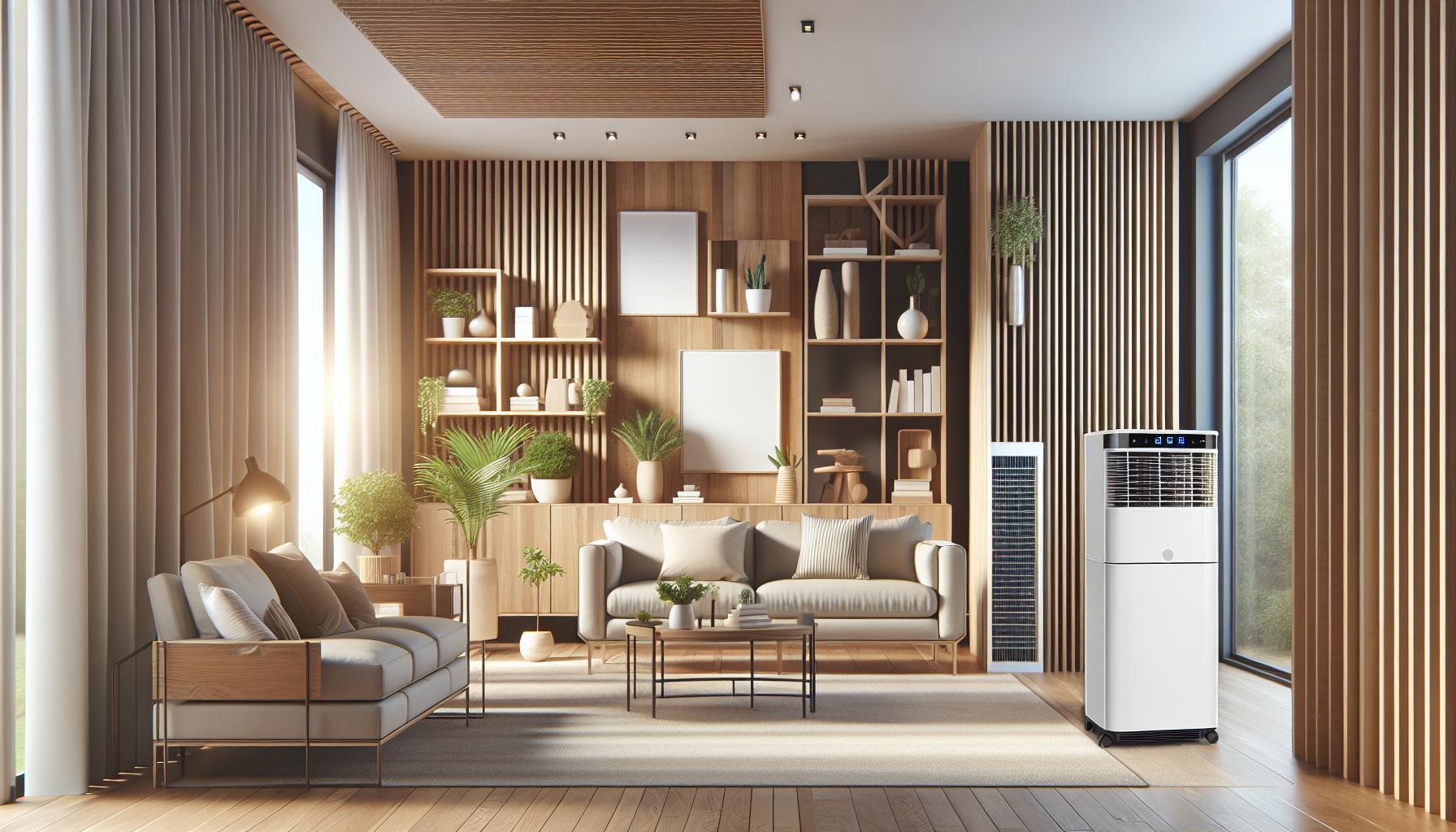Imagine walking into your home and feeling an immediate sense of comfort, free from the oppressive humidity that often plagues many households. Whole house dehumidifiers promise to deliver this very experience, offering a comprehensive solution to moisture control. But are they worth the investment?
In this text, you’ll discover the key advantages and potential drawbacks of whole house dehumidifiers. From improving air quality to reducing energy costs, these devices can significantly enhance your living environment. But, it’s crucial to weigh these benefits against factors like installation complexity and maintenance requirements.
By understanding the pros and cons, you can make an well-informed choice about whether a whole house dehumidifier is right for your home. Immerse to explore how this technology can transform your indoor climate and potentially improve your quality of life.
Understanding Whole House Dehumidifiers
Whole house dehumidifiers aim to control the humidity levels in your home, ensuring a comfortable living environment. They integrate with your HVAC system to provide uniform moisture control.
What Is A Whole House Dehumidifier?
A whole house dehumidifier is a device that removes excess moisture from your home’s air. It’s typically installed within your HVAC system, providing consistent humidity control.
How Do Whole House Dehumidifiers Work?
Whole house dehumidifiers operate through your HVAC system. They draw moist air via return ducts, remove moisture using a coil, then distribute dry air back through supply ducts.
Pros Of Whole House Dehumidifiers

Whole house dehumidifiers provide several benefits, enhancing your home’s air quality, comfort, and overall energy efficiency. They also help protect your home’s structures and furnishings from potential moisture damage.
Improved Air Quality
Whole house dehumidifiers effectively remove excess moisture, promoting a healthier indoor environment. This reduction in humidity can alleviate symptoms for those with asthma and allergies. By controlling moisture levels, they also prevent mold and mildew growth, significantly improving indoor air quality.
Enhanced Comfort
Removing excess humidity makes your home feel cooler, even at higher thermostat settings. Dry air is easier to cool than humid air, leading to a more comfortable living environment. This can enhance your overall comfort without needing to lower the thermostat.
Energy Efficiency
Whole house dehumidifiers help reduce energy costs. By maintaining optimal humidity levels, they reduce the load on your air conditioning system. This can lead to lower energy consumption and decreased utility bills, making your home more energy-efficient.
Protection Of Home Structures and Furnishings
These dehumidifiers protect your home’s structures and furnishings from moisture-related damage. By controlling humidity, they prevent wood warping, paint peeling, and rusting of metal components. This ensures the longevity of your home’s interior and valuables.
Cons Of Whole House Dehumidifiers
Even though whole house dehumidifiers offer several benefits, there are some drawbacks to consider. These cons can affect your overall experience and investment.
Initial Cost
Whole house dehumidifiers come with a high upfront cost. Units typically range from $800 to $2,400, and professional installation can double this expense.
Maintenance Requirements
Maintenance for whole house dehumidifiers, though less frequent than portables, is still necessary. You’ll need to clean or replace filters periodically to keep the unit running efficiently.
Installation Complexity
Installing a whole house dehumidifier can be complex. It often requires professional expertise, as it involves integration with your existing HVAC system.
Comparing Whole House And Portable Dehumidifiers
Key Differences
Whole house dehumidifiers integrate with your HVAC system, providing consistent moisture control, while portable units target specific areas. Whole house models offer better efficiency, but portable ones are more flexible and cheaper.
Situational Suitability
Whole house dehumidifiers suit larger homes with widespread humidity issues, whereas portable units are ideal for single rooms or smaller spaces. Consider installation complexity and energy consumption when choosing the best option for your needs.
Conclusion
Deciding whether to invest in a whole house dehumidifier involves weighing both the benefits and the potential challenges. While the initial cost and complexity of installation might seem daunting, the advantages of improved air quality, enhanced comfort, and energy efficiency are significant.
If your home suffers from widespread humidity issues, this technology could provide a long-term solution that protects your living environment and reduces energy consumption. But, if you’re dealing with humidity in smaller, specific areas, a portable unit might be more practical and cost-effective.
Eventually, understanding your home’s needs and budget will guide you in making the best choice. A whole house dehumidifier can be a valuable investment, enhancing both your indoor climate and quality of life.
